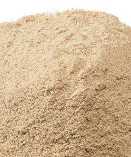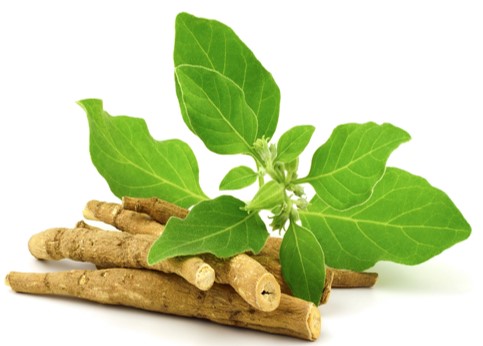Strengthen Your Body: Understand the Five Factors that Impact Your Immune System
Your immune system is a defense mechanism that works to keep your body healthy and protected. Immune systems protect from any foreign bodies, viruses, or pathogens, preventing any damage. The immune system’s role goes beyond protection against illness. It supports important functions like wound healing and even regulates processes like digestion and metabolism. But, poor lifestyle choices can weaken this system. Things like diet, exercise, stress, and sleep play an important role in immune function. So let’s understand these factors that affect your immune and then explore things we can do to improve this system as well. Factors Affecting the Immune System: Alcohol: Heavy alcohol consumption can butcher your immune system and make it more challenging for your body to combat stress, viruses, and diseases. Alcohol can interfere with the production of key immune molecules which can make you more susceptible to infections and illnesses. While enjoying an occasional drink may not have extremely significant risks, it’s important to limit your alcohol intake. Even social drinking can be harmful as a lot of times moderation can be compromised in social situations. b. Smoking: Smoking can cause significant harm to your immune system. It can compromise its ability to fight infections and diseases. The toxic chemicals found in cigarette smoke can directly damage immune cells which impair their function and reduce their effectiveness in combating pathogens. Moreover, smoking can trigger inflammation throughout the body which weakens immune responses. Consistent smoking hampers the body’s natural defenses. c. Processed Food: Consuming highly processed foods, like chips, instant foods, and sodas can snatch essential nutrients from your body which are needed for proper immune function. Consuming nutrient-rich and fresh foods like fruits, vegetables, and fibre-rich grains, can provide your immune system with the fuel it needs. Every choice of bite you take can make or break your immune system. d. Stress: Chronic stress can trigger inflammation in the body and negatively impact your immune system’s ability to fight illnesses. Taking care of your mental health is extremely important for stress reduction. Chronic stress suppresses the basic immune response of the body which can make you more susceptible to illnesses. e. Not Getting Enough Sleep: Inadequate sleep and not following a circadian rhythm can hamper your immune system. Sleep deprivation weakens the immune response by reducing the production of key immune cells. This decrease in immune function makes it harder for your body to fight off infections. Moreover, improper sleep disrupts the balance of hormones that regulate immune function, further reducing your body’s ability to create a strong defence against pathogens. How to Boost Your Immune System: Now that we have understood the various factors that can potentially weaken our immune system, let’s learn about how to strengthen the immune system potentially a. Helpful Ways to Strengthen Your Immune System: Let’s focus on adopting a healthy lifestyle following these habits: b. Eat a Diet High in Fruits and Vegetables: Fruits and vegetables are packed with vitamins, minerals, and antioxidants that can be immune system boosters. Seasonal and fresh fruits/vegetables carry multiple benefits, they’re packed with water content, they can be great for gut health and they’re great sources of fibre. Always aim to incorporate a variety of colourful veggies into your meals to make sure that you’re getting a range of nutrients. c. Exercise Regularly: Regular physical activity can not only improve cardiovascular health but also increase your immune function. Go for at least 30 minutes of moderate exercise, most days of the week to really gain the immune-boosting benefits. Whether it’s brisk walking, cycling, or dancing, find activities that you enjoy and make them a regular part of your routine. d. Maintain a Healthy Weight: Maintaining a healthy weight can be potentially important for supporting proper immune function and reducing the risk of chronic diseases. Focus on adopting a balanced diet and engaging in regular physical activity to achieve and maintain a healthy weight. Small, but consistent changes to your lifestyle can have a significant impact on your immune health and overall well-being. e. Get Adequate Sleep: Quality sleep can prove to be important for a strong immune system. It can let your body repair and regenerate its system with ease. Go for 7-9 hours of undisturbed sleep each night to support proper immune function. Setting a relaxing bedtime routine, such as reading or taking a warm bath, creating a comfortable sleep environment and maintaining sleep hygiene with minimal distractions can promote restful sleep and can increase your body’s ability to fight off infections and illnesses. f. Try to Minimize Stress: Chronic stress can sometimes decrease your immune system function, making you more susceptible to infections and diseases. Including stress-reducing activities in your daily routine, like meditation, deep breathing exercises, or spending time in nature. Understand the importance of mental health and keep a check on it. Prioritize self-care and find healthy ways to manage stress to potentially support your immune health. Now that we have learned about how to improve the immune system, let’s incorporate little lifestyle changes to potentially increase immune function. Your immune system is an excellent defence mechanism that requires proper care and support to function properly. Strengthening your body’s natural defences and improving your general well-being may be achieved by addressing the things that compromise your immune system and implementing healthy lifestyle practices. Keep in mind that minor adjustments made today might result in major gains in your immune system’s function tomorrow. Thus, put your health first and give yourself the resources you need to live the healthiest life possible.














